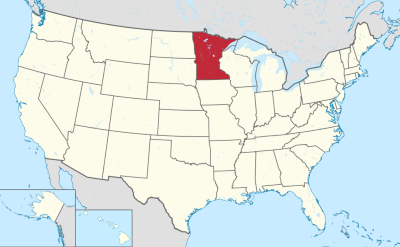Here you’ll find the largest list with Minnesota hosting reviews. We’ve listed all Minnesota web hosting providers with our UNCENSORED review and that of users.

Quick Facts
Internet Speed: 31 Mbps downlink; 11 Mpbs uplink
Population: 5.50 million
Main Internet services: Cable, DSL, Fiber
Main Internet Service Providers: Comcast, CenturyLink
Colocation Datacenters: 31
Colocation Market: Emerging, with potential for further development
Internet in Minnesota
According to Akamai.com, the average downlink Internet speed in Minnesota is 11 Mbps and the average uplink speed is 1 Mbps.
In 2016, the population of Minnesota was roughly 5.50 million. Over 90% of residents have access to the Internet, especially broadband connections.
Main Internet services provided in Minnesota are as follows:
– Cable – 90% coverage
– DSL – 85% coverage
– Fiber – less than 7% coverage
Main Internet Service Providers established in Minnesota are the following:
– Comcast (Cable) – 95% availability
– CenturyLink (DSL) – 85% availability
– CenturyLink (Fiber) – less than 20% availability
Gigabit Internet in Minnesota
Gigabit Internet services are scarcely available in Minnesota, as reflected by the very low penetration rate of only 12.2%. CenturyLink is among the few ISPs that provide gigabit services to Minnesotans. This service is usually provided to businesses exclusively, but in some pockets of metro areas – in Minneapolis specifically – this service is used by residential customers as well.
Colocation Datacenters in Minnesota
According to datacentermap.com, there are currently 32 colocation datacenters in Minnesota. Most datacenters are located in Minneapolis (26), while the rest are distributed across other smaller cities, such as Cambridge, Duluth, Braham, as well as Alexandria.
In Minneapolis, prominent colocation providers include the following:
– Point North Networks, Inc.
– vXchnge
– Cologix
– ViaWest, Inc.
– DataBank
– tw telecom
Prominent Colocation Providers – vXchnge
One of the largest colocation providers located in Minnesota is vXchnge. This company operates a 15,000-square-foot facility which facilitates the tech infrastructure of the state, as well as the surrounding northern Midwest states. The datacenter provides retail colocation services, in addition to diverse disaster recovery and business continuity solutions for customers coming from surrounding markets. Amenities include: 2.4 MW of total utility power, 2.4 MW of backup power with automatic transfer, N+2 cooling system and temperature management. Carrier neutrality is ensured by means of interconnectivity with major telecommunications providers and other carrier hotels located in close proximity.
Prominent Colocation Providers – ViaWest, Inc.
Another important colocation provider is ViaWest, Inc. This million-dollar colocation provider operates a 70,000-square-foot facility located in the central business district, and specializes in providing wholesale and retail colocation services, in addition to diverse disaster recovery solutions. The facility is carrier neutral, with on-site access to major telecom providers and key carrier hotels.
Colocation Industry in Minnesota
Minnesota is one of the most developed colocation markets in mid-western U.S., serving as the region’s undisputed hub for colocation services. According to datacenterknowledge.com, Minnesota – and Minneapolis in particular – is a key emerging market for colocation in the Midwest, and one of the U.S.’ top states for business, according to CNBC. Another important reason why this market is popular is its being surrounded by stagnant markets, such as North Dakota, where customers usually avoid co-locating. The continued business success in the area generated by the presence of million-dollar colocation providers such as ViaWest and vXchnge, as well as the subsequent investments made by these companies, helped this state make the transition from an undeserved market to an emerging market.
Advantages for Colocation
Minnesota exhibits a considerable series of advantages for colocation, which are as follows:
– the presence of top colocation companies, especially in Minneapolis, but in smaller cities as well
– quite developed technical infrastructure, mainly in Minneapolis
– relatively low electricity cost, but not significantly lower than other emerging markets
Disadvantages for Colocation
The disadvantages for colocation in this state are:
– moderate risk for natural disasters
– a lot of supply for colocation space
– favourable climate for facilities to benefit from free cooling throughout the year

